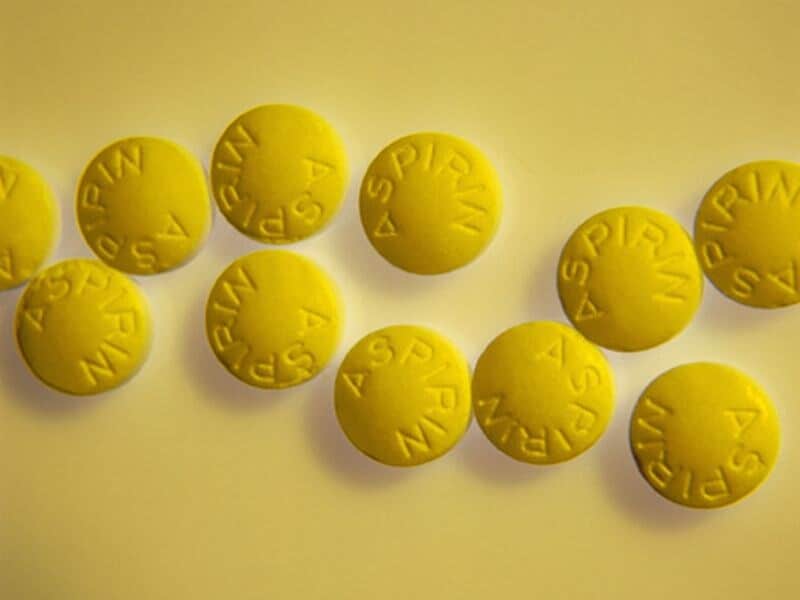MONDAY, July 22, 2019 (HealthDay News) — Nearly 30 million U.S. adults aged 40 years or older use aspirin to prevent cardiovascular disease (CVD), including 6.6 million without a physician’s recommendation, according to a research letter published online July 23 in the Annals of Internal Medicine.
Colin W. O’Brien, M.D., from Harvard Medical School in Boston, and colleagues characterized aspirin use for primary prevention of CVD among 14,328 U.S. adults. Participants aged 40 years or older were asked whether they had been told to take low-dose aspirin each day to prevent or control heart disease, whether they were following this advice, and whether they were taking low-dose aspirin on their own.
The researchers found that 23.4 percent (about 29 million persons) of adults aged 40 years or older without CVD reported taking aspirin daily for prevention of CVD; 22.8 percent (6.6 million persons) did so without a recommendation from a physician. Aspirin use was reported by nearly half of adults aged 70 years or older without CVD. Older age, male sex, and cardiovascular risk factors were significantly associated with aspirin use after adjustment. There was no significant association for a history of peptic ulcer disease with lower aspirin use.
“Our findings show a tremendous need for health care practitioners to inquire about ongoing aspirin use and to counsel patients about the balance of benefits and harms, especially among older adults and those with prior peptic ulcer disease,” the authors write.
Abstract/Full Text (subscription or payment may be required)
Copyright © 2019 HealthDay. All rights reserved.



